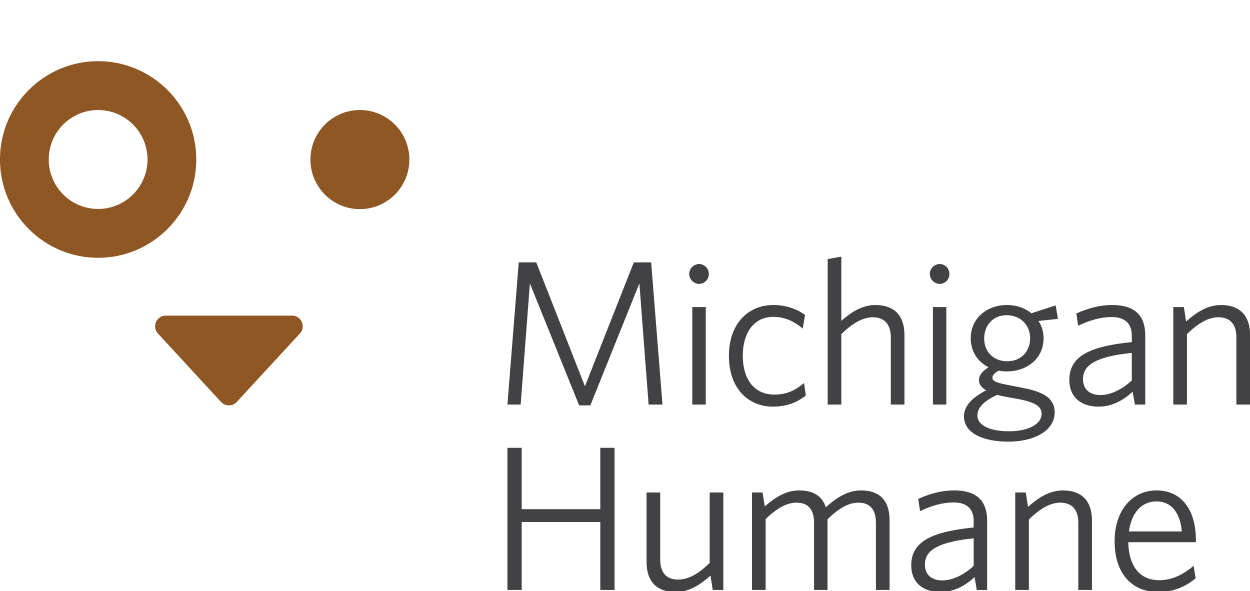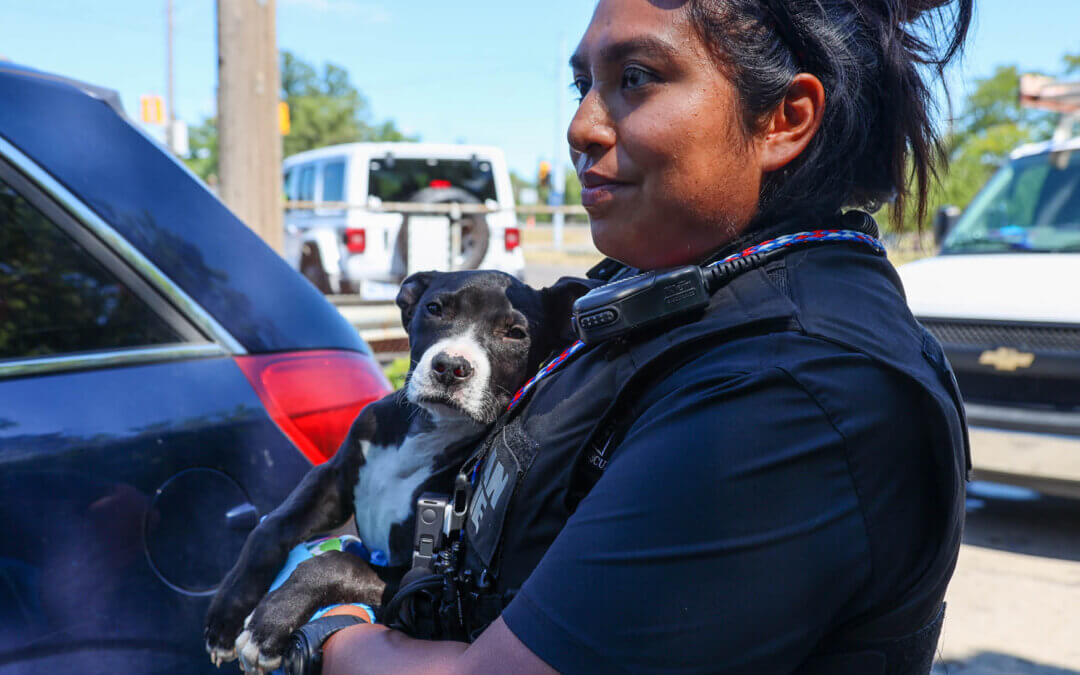Advocacy for animals is a key component of Michigan Humane’s mission and is critical to our work to create more humane communities. Michigan Humane actively advocates for the enactment of strong legislation that, if effectively enforced, can have a long-term, positive impact on animal welfare. Much of Michigan Humane’s legislative advocacy work is focused on state legislation. We also work at the local level on issues that are seen as matters that are more appropriate for local regulation.
Compared to the volume of state statutes and local ordinances, there is not a lot of federal animal welfare legislation, and the federal government typically defers to state and local governments to legislate animal welfare according to the state’s or local community’s needs. But there are some issues that are appropriate for regulation at the national level, and Michigan Humane has taken the opportunity to work with the ASPCA in support of two important federal bills: Goldie’s Act and the Providing for Unhoused People with Pets (PUPP) Act.
This is an important year for federal animal-related legislation because it is a “Farm Bill year.” The Farm Bill is an omnibus bill that addresses many agricultural policy issues and allocates spending on federal programs. The Farm Bill is renewed every five or six years, and it is often a vehicle for passing animal-related legislation. One of the ways that Goldie’s Act and the PUPP Act could pass would be by including them in the Farm Bill. Congress could also pass the bills independent of the Farm Bill.
Both bills were introduced in the House of Representatives, and both were assigned to the House Agriculture Committee. (The PUPP Act was also assigned to the House Financial Services Committee.) Senator Debbie Stabenow, one of Michigan’s two U.S. Senators, is the Chairwoman of the Senate Agriculture Committee and would have a significant role to play in the passage of both bills, whether through the Farm Bill or independently. For that reason, it was particularly important for Michigan stakeholders like Michigan Humane to express support for these bills.
Goldie’s Act – H.R. 1788
We first published an article about Goldie’s Act after its introduction in spring 2023. Goldie’s Act would strengthen the protection for animals in USDA-licensed commercial breeding facilities by amending the Animal Welfare Act (AWA). Although the dogs in these facilities are, in theory, guaranteed a minimum standard of care by the AWA, these facilities often put profit ahead of animal welfare and are notorious for causing animal suffering and producing puppies to be sold as pets that have serious physical, behavioral, and genetic issues. The USDA has failed to enforce the AWA, resulting in preventable, chronic animal suffering.
If passed, Goldie’s Act will require the USDA to conduct annual inspections and any necessary follow-up inspections to ensure compliance with the AWA, to fully document violations and share that information with state and local law enforcement, to confiscate or euthanize any animals found to be suffering, and to issue penalties for AWA violations.
Michigan Humane joined more than 100 other stakeholders in signing a letter urging the leaders of the House and Senate Agriculture Committees to include Goldie’s Act in the Farm Bill.
PUPP Act – H.R. 3957
The National Alliance to End Homelessness estimates that approximately 10% of unhoused people have pets. Unfortunately, there are few human shelters that are able to accommodate unhoused people with pets. The difficulties experienced by unhoused people with pets in accessing emergency shelter and other services often require them to choose between keeping their pets or relinquishing them to an animal shelter. Due to the strength of the human-animal bond, most unhoused individuals will remain on the streets if separating from their animals is a condition of receiving help. This perpetuates homelessness and increases the number of people living without shelter.
In an effort to stop this cycle of homelessness, the PUPP Act was introduced in summer 2023 and would, if passed, create a fund from which the U.S. Department of Agriculture (USDA), in consultation with the U.S. Department of Housing and Urban Development (HUD), could give grants to eligible organizations to enable them to offer interim or permanent housing to unhoused people with pets. The grants could be used to modify existing facilities, construct new facilities, and provide pet supplies and basic care, including veterinary and behavior services.
Michigan Humane helped to circulate and signed a letter urging the House and Senate Agriculture Committee leadership to support the PUPP Act and include it in the Farm Bill.
We are going to keep working to improve animal welfare and create a more humane community while serving as a voice for the animals through advocacy. Together, we can continue to make a difference in animals’ lives. If you know someone who you think would be interested in this information, please forward this to them and encourage them to sign up for our Legislative Action Network.

